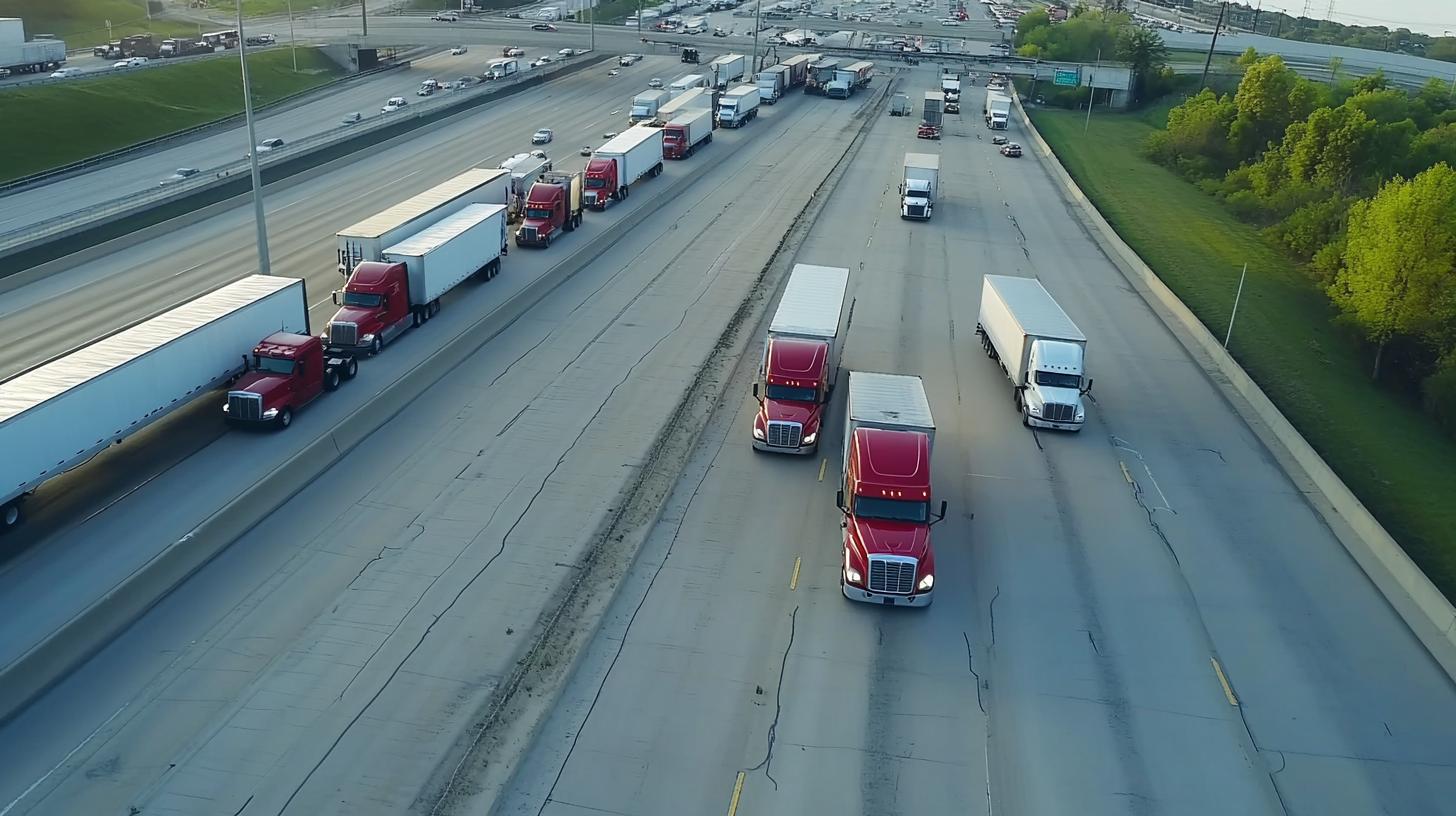Understanding the Impact of Forced Dispatch FMCSA Regulations on Truck Drivers
Published: 02.02.2025
Introduction to Forced Dispatch FMCSA Regulations
Forced dispatch is a contentious issue within the trucking industry, particularly among truck drivers who value their independence and autonomy on the road. The Federal Motor Carrier Safety Administration (FMCSA) has established regulations regarding forced dispatch to ensure the safety of both drivers and the public. These regulations dictate when and how carriers can require drivers to take on specific loads or routes, even when the driver may have safety concerns or reservations.
The FMCSA regulations aim to strike a balance between the operational needs of carriers and the rights of drivers. By understanding the intricacies of forced dispatch regulations, truck drivers can navigate this aspect of their job more effectively and advocate for their own safety and well-being. It is crucial for drivers to be aware of their rights and responsibilities under these regulations to make informed decisions while on the road.
In this section, we will delve into the key aspects of forced dispatch FMCSA regulations, exploring the implications for truck drivers and the industry as a whole. By shedding light on these regulations, we aim to provide a comprehensive understanding of how forced dispatch https://newjobs4you.com/blogs/experience/how-to-choose-a-mobile-phone/ impacts drivers and what measures can be taken to ensure compliance while prioritizing safety.

Challenges Faced by Truck Drivers
Truck drivers in the United States face a multitude of challenges in their profession, with forced dispatch regulations from the Federal Motor Carrier Safety Administration (FMCSA) being a significant issue. Forced dispatch refers to the practice where truck drivers are required to take on assignments or routes against their will, often leading to increased stress, fatigue, and safety concerns.
One of the primary challenges faced by truck drivers due to forced dispatch regulations is the lack of control over their schedules and work conditions. Being forced to adhere to strict timelines and routes can result in drivers being on the road for extended periods without adequate rest, leading to driver fatigue and increased risk of accidents. Additionally, forced dispatch can limit drivers' ability to address personal needs or emergencies, further adding to their stress and dissatisfaction with the job.
Moreover, forced dispatch can also impact the mental health and well-being of truck drivers . The constant pressure to meet deadlines and the lack of autonomy in decision-making can contribute to feelings of burnout, anxiety, and depression among drivers. This can have long-term consequences on their overall health and job satisfaction, affecting their performance on the road.






In conclusion, forced dispatch regulations imposed by the FMCSA present significant challenges for truck drivers, affecting their safety, well-being, and job satisfaction . It is crucial for policymakers and industry stakeholders to address these issues and work towards solutions that prioritize the health and safety of truck drivers while ensuring the efficiency of the transportation industry.
Impact on Safety and Well-being
The forced dispatch FMCSA regulations have a significant impact on the safety and well-being of truck drivers. By being forced to accept loads without the ability to assess potential risks or ensure they are adequately rested, drivers are put in situations that can compromise their safety on the road.
One of the main concerns is the increased risk of fatigue among truck drivers . Forced dispatch often leads to drivers having to work long hours without sufficient breaks, which can result in drowsy driving and an increased likelihood of accidents. This not only endangers the drivers themselves but also other road users.



Furthermore, the lack of control over their schedules can negatively affect the mental and emotional well-being of truck drivers. Constant pressure to meet tight deadlines and deliver loads on time can lead to stress, anxiety, and even burnout. This can have long-term consequences on their overall health and quality of life.
In addition, forced dispatch can also impact the physical health of truck drivers . The sedentary nature of long-haul driving combined with irregular eating habits and limited access to healthy food options on the road can contribute to weight gain, cardiovascular issues, and other health problems.
Overall, the forced dispatch FMCSA regulations have a profound impact on the safety, health , and well-being of truck drivers . It is crucial to address these issues to ensure that drivers can perform their jobs effectively while prioritizing their safety and quality of life.

Industry Response and Proposed Solutions
The forced dispatch FMCSA regulations have sparked significant concern and debate within the trucking industry. Many truck drivers and industry stakeholders have expressed frustration over the lack of flexibility and autonomy that these regulations impose. In response to these challenges, industry leaders have begun to explore potential solutions to address the negative impact of forced dispatch on truck drivers.
One proposed solution is to enhance communication and collaboration between carriers and drivers. By fostering open dialogue and mutual understanding, carriers can better accommodate drivers' preferences and needs, leading to improved job satisfaction and retention rates. Additionally, implementing technology solutions such as real-time tracking and load matching systems can help optimize dispatch processes and provide drivers with more control over their schedules.
Another key aspect of addressing forced dispatch regulations is advocating for regulatory reforms at the federal level. Industry associations and advocacy groups are actively engaging with policymakers to raise awareness of the challenges faced by truck drivers and push for more balanced and flexible regulations. By working together to influence policy changes, stakeholders hope to create a regulatory environment that prioritizes both safety and driver well-being.
Furthermore, investing in driver training and support programs can help mitigate the negative effects of forced dispatch on truck drivers. Providing resources for stress management, health and wellness initiatives, and career development opportunities can improve drivers' overall quality of life and job satisfaction. By prioritizing driver welfare, carriers can foster a more positive and sustainable work environment for their employees.
In conclusion, the trucking industry is actively responding to the impact of forced dispatch FMCSA regulations by proposing various solutions aimed at improving driver well-being and job satisfaction. Through enhanced communication, regulatory advocacy, and driver support initiatives, stakeholders are working towards a more balanced and sustainable approach to dispatch practices.
Conclusion and Future Outlook
In conclusion, the forced dispatch FMCSA regulations have had a significant impact on truck drivers across the industry . The regulations have raised concerns about driver safety, job satisfaction , and overall well-being. Truck drivers are facing increased pressure to meet strict deadlines, often resulting in fatigue, stress, and compromised safety on the roads.
Looking ahead, it is crucial for policymakers, trucking companies , and industry stakeholders to work together to address the challenges posed by forced dispatch regulations. Measures should be taken to prioritize driver safety and well-being, including implementing better scheduling practices, providing adequate rest breaks, and offering support services for drivers facing mental health issues.
Furthermore, there is a need for ongoing research and data collection to better understand the long-term effects of forced dispatch regulations on truck drivers. By gaining a deeper insight into the experiences and challenges faced by drivers, we can develop more effective solutions and policies to ensure a safer and more sustainable working environment for all truck drivers.
In the future, it is essential to strive for a balance between operational efficiency and driver welfare, recognizing that the well-being of truck drivers is paramount to the success and sustainability of the industry as a whole.

